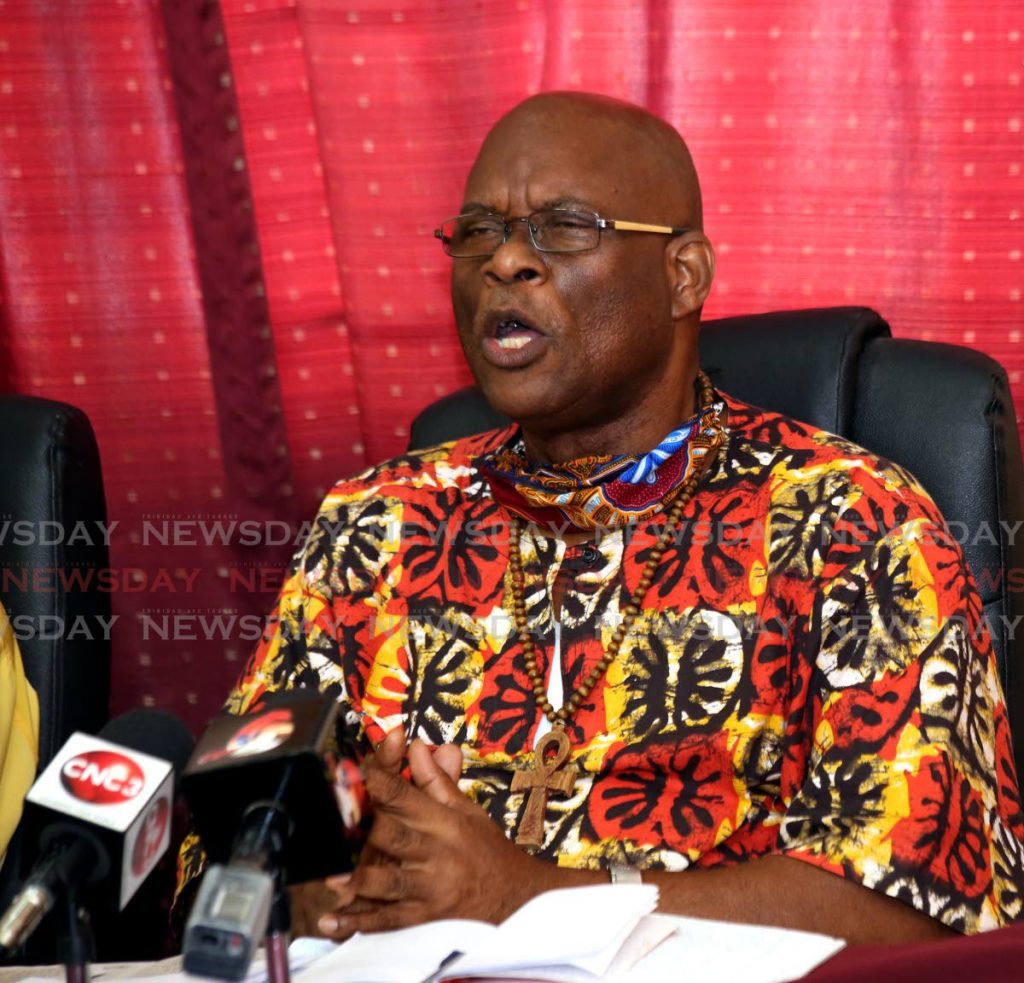Annisette: No evidence that mandatory vaccination works

NATIONAL Trade Union Centre (NATUC) general secretary Michael Annisette said the labour movement would only support a mandatory vaccination programme in Trinidad and Tobago once clear and indisputable evidence can be provided about its effectiveness.
Annisette made these comments in a television interview and a subsequent phone interview on Monday.
"Our members are free to take the vaccination as they see fit, based on the evidence that is placed before them," Annisette said, "There are several trade union leaders who have taken the vaccination and some would not have taken it because of the individual choice."
He added that he has been vaccinated against other illnesses.
Asked whether trade unions would support Government if it decided to make covid19 vaccination mandatory, Annisette replied, "The union will support the Government in making anything mandatory as long as the empirical evidence, research, scientific research and trials, efficacy and all the efficacies that go with vaccinations have been tested."
But he added that this has not happened.
Annisette also argued that no one could use concerns about the delta variant of covid19 coming to TT to force people to be vaccinated.
He claimed there is no empirical evidence to show that any covid19 vaccine has been proven "to stop prevailing or emerging variants."
He also said concerns about the public health risks posed by covid19 vaccines are "just conjectural, because there is no empirical evidence to support what is being said."
Notwithstanding statements by the Prime Minister, Attorney General Faris Al-Rawi, Labour Minister Stephen McClashie and Industrial Court president Deborah Thomas-Felix that covid19 vaccination is not mandatory, Annisette said there are some employers who have assigned the right to themselves to tell their employees that "if they fail to take the vaccine and show that they take the vaccine that they would not be employed."
He claimed this was happening in the cases of casual workers and workers who are not represented by a recognised majority trade union.
"That is wrong in law and it must be condemned."
He said Natuc was willing to support any worker "who may face those kinds of coercion, in terms of personal and private life."
Taking an injection, he said, was "a private matter, and people seem to forget that."
He said when covid19 first emerged in 2019, Natuc called for stakeholders in TT to examine what could be the potential social and economic implications of the virus.
"No one took us on, including the Government."
At a news conference at the Diplomatic Centre in St Ann's on July 18, Dr Rowley said, “We are carrying out a voluntary programme…we have not considered a mandatory programmme." He added, "However, if some time ahead of us a new virus or a variant of this virus or any kind of infection assails this nation and is far more destructive than this one or the condition is more destructive than this one, then this Government, like every other government in the world facing that condition, will have to act.”
On July 10, McClashie said, "So far, as of today's date, the President of the Industrial Court (Deborah Thomas-Felix) has made a determination and said clearly, that is it not law and that employers have no jurisdiction in ensuring or mandating that their employees are vaccinated at this point."
Recalling that the ministry's industrial relations committee (IRAC) is examining the issue of a workplace vaccination policy, McClashie said, "What IRAC is doing now is coming forward with a policy-type prescriptive thing, that we would then take to the Cabinet."
In February, Thomas-Felix said employers cannot make it mandatory for workers to be vaccinated. But she said if a person "is not employed at the establishment but is seeking employment, an employer can insist that the individual gets a vaccine in order to obtain employment at the establishment."
Thomas-Felix said the person can then decide to be vaccinated or not be employed at that business on those terms.
At a virtual news conference on June 8, Al-Rawi said Government has not decided whether to make covid19 vaccines mandatory under law. He referred to a ruling by the European Court of Human Rights (ECHR ) in April on mandatory vaccination as it related to a particular matter in the Czech Republic. He said, "The Cabinet has not discussed this matter nor has advice been formalised in relation to this.
"All that I will say for now is that people are encouraged to vaccinate so that we can protect the nation as we move ahead."

Comments
"Annisette: No evidence that mandatory vaccination works"